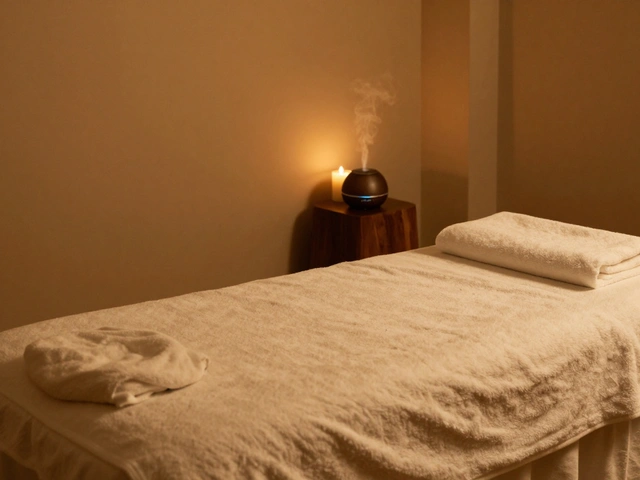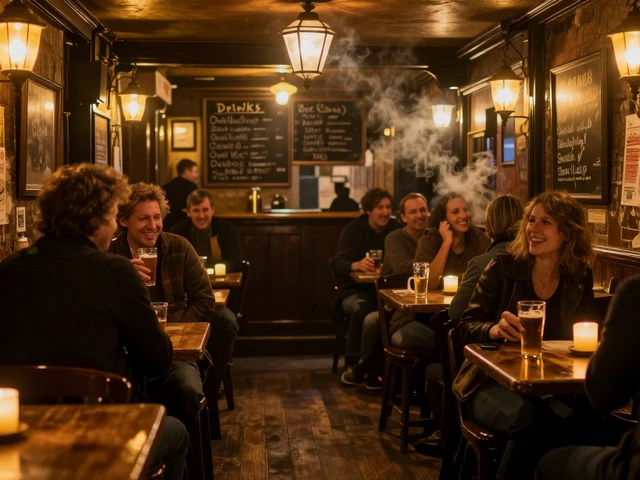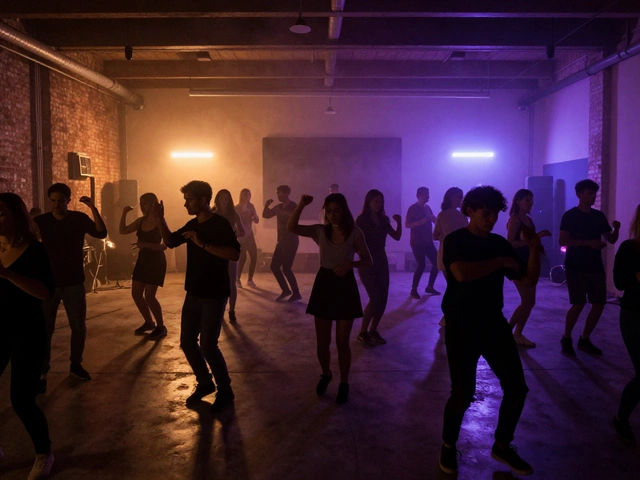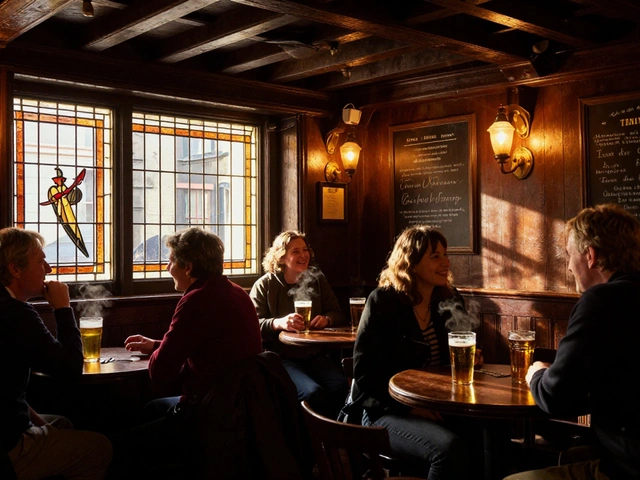Night Club - Feel the Night’s Energy
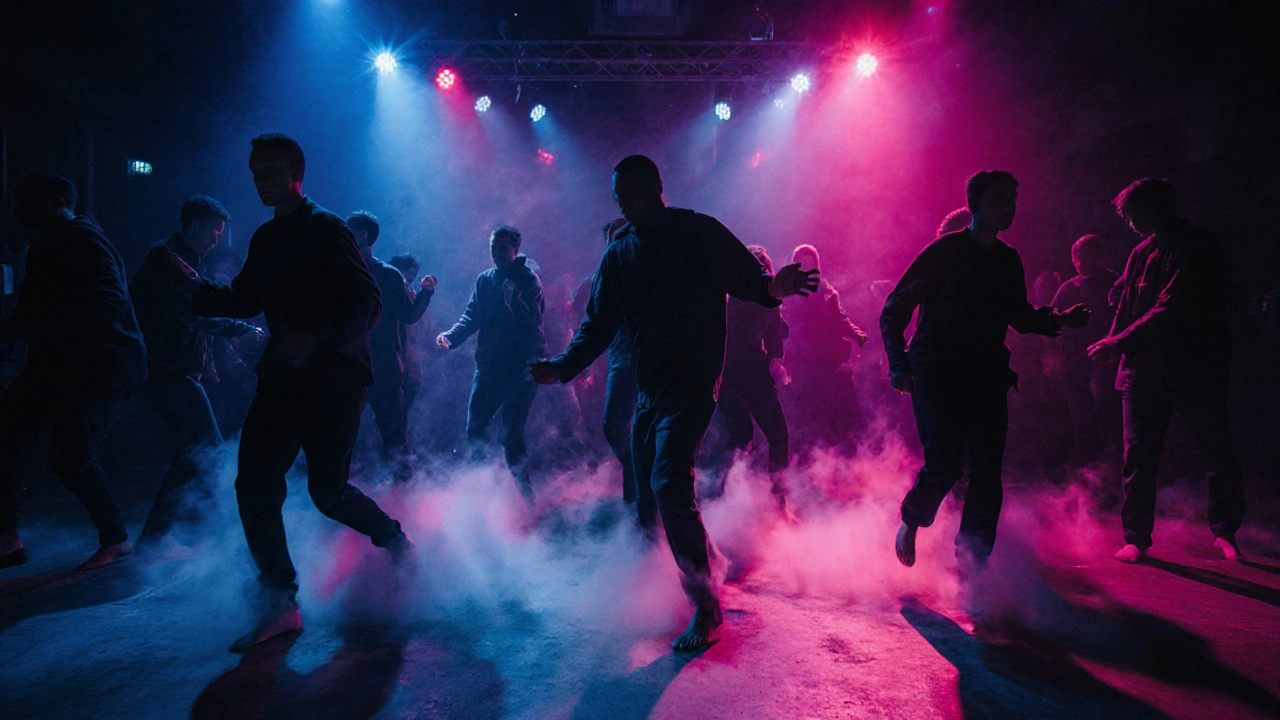
Night club isn’t just a place to drink and dance-it’s where the rhythm of the city comes alive after dark. If you’ve ever stepped into a dimly lit room with bass vibrating through your chest, strangers becoming friends under strobe lights, and time losing all meaning, you know what I mean. This isn’t about showing off or being seen. It’s about feeling something real-the raw, unfiltered energy of the night. And in 2025, that feeling is more accessible, more diverse, and more meaningful than ever.
Understanding the Basics of Night Club
Origins and History
The modern night club didn’t start in Ibiza or New York. It began in the speakeasies of 1920s America, where jazz played behind locked doors and people danced to escape prohibition. Fast forward to the 1970s, and disco exploded in underground clubs in cities like Philadelphia and Chicago. Then came techno in Detroit, house in Chicago, and rave culture in the UK. Each wave brought new sounds, new styles, and new ways to connect. Today’s night clubs are the evolution of those movements-spaces where music, movement, and community collide. They’re not just venues; they’re cultural hubs that reflect the pulse of urban life.
Core Principles or Components
At its heart, a night club operates on three pillars: sound, space, and social flow. Sound is everything-the DJ isn’t just playing tracks, they’re curating an emotional journey. The bassline pulls you in, the drop releases tension, the breakdown gives you space to breathe. Space matters too: lighting shifts with the beat, walls breathe with fog machines, and the layout guides movement. Social flow is the quiet magic-how strangers nod at each other during a familiar drop, how someone buys you a drink without saying a word, how you find your group again after dancing separately. It’s not chaos. It’s choreographed freedom.
How It Differs from Related Practices
People often confuse night clubs with bars, lounges, or live music venues. Here’s how they’re different:
| Category | Primary Focus | Music Style | Atmosphere |
|---|---|---|---|
| Night Club | Dancing and rhythm | Electronic, hip-hop, remixes | Dark, high-energy, immersive |
| Bar | Drinks and conversation | Background pop, acoustic | Lively but relaxed |
| Lounge | Chill vibes and cocktails | Smooth jazz, downtempo | Quiet, intimate, slow-paced |
| Live Music Venue | Performance | Band-specific genres | Focused on stage, seated or standing |
Who Can Benefit from Night Club?
You don’t have to be a party animal to enjoy a night club. People go for all kinds of reasons: to release stress after a long week, to celebrate a milestone, to meet new people without the pressure of small talk, or just to feel alive. Students, artists, entrepreneurs, and retirees all find their place. It’s not about age or background-it’s about openness. If you’re tired of scrolling and want to feel your body move without judgment, the club welcomes you.
Benefits of Night Club for Mind and Body
Stress Reduction
Dancing isn’t just fun-it’s medicine. When you move to a beat, your body releases endorphins and dopamine. The rhythm helps quiet the mental chatter that builds up during the day. Research from the University of Westminster shows that group dancing lowers cortisol levels more than solo exercise. In a club, you’re not just moving-you’re moving with others. That shared energy creates a sense of belonging, which reduces feelings of isolation. After an hour on the floor, you don’t just feel tired-you feel lighter.
Enhanced Social Connection
Humans are wired for connection. But in today’s digital world, real interaction is rare. Night clubs offer a rare space where communication happens without words. A glance, a smile, a shared nod during a song-these moments build trust faster than any icebreaker. You don’t need to exchange numbers. Sometimes, just dancing beside someone for 20 minutes is enough. Many regulars say they’ve made lifelong friends this way. It’s not about dating. It’s about human resonance.
Emotional Well-Being
Music has a direct line to your emotions. A well-placed drop can make you cry. A nostalgic track can bring back memories you forgot you had. Clubs often play music that taps into collective nostalgia-remixes of 90s hits, underground classics, or global beats you’ve never heard before. This emotional release is therapeutic. People come to the club to grieve, to celebrate, to feel something real. It’s not escapism. It’s emotional recalibration.
Practical Applications
Think of the night club as a tool for mental reset. Many professionals in Dublin, Berlin, and Tokyo use weekend nights out as a structured way to disconnect from work. It’s not about drinking-it’s about shifting your state. You leave your phone in your bag, you stop thinking about emails, and you let your body lead. This kind of immersion is hard to replicate at home. Even one night a month can reset your mood for weeks.
| Benefit | Description | Impact |
|---|---|---|
| Stress Relief | Dancing lowers cortisol and boosts endorphins | Reduces anxiety, improves sleep |
| Social Reconnection | Non-verbal bonding with strangers | Fights loneliness, builds community |
| Emotional Release | Music triggers deep memories and feelings | Improves mood, enhances self-awareness |
| Mental Reset | Forces disconnection from digital overload | Increases focus, boosts creativity |
What to Expect When Engaging with Night Club
Setting or Context
Every club has its own vibe. Some are industrial warehouses with concrete floors and laser grids. Others are intimate basement spots with velvet booths and vinyl-only DJs. In Dublin, clubs like The Button Factory or The Workman’s Club blend history with modern sound systems. Don’t expect glitter and neon unless you’re going to a themed night. Most serious clubs focus on sound quality and atmosphere-not decorations. The lighting is low, the air is warm, and the crowd moves like water. You’ll feel the bass before you hear it.
Key Processes or Steps
There’s no script, but there’s a rhythm. First, you arrive-usually after 10 p.m. You might wait in line, but that’s part of the build-up. Inside, you find your spot. Maybe you grab a drink, maybe you don’t. Then you let the music pull you in. The DJ starts slow, builds tension, drops the beat. You move without thinking. You lose track of time. Around 2 a.m., the energy shifts. People slow down, conversations start. By 4 a.m., it’s quiet again-just a few people dancing, the lights dimming. You leave tired, but not drained.
Customization Options
You don’t have to dance all night. You can sit by the bar and listen. You can go alone or with a group. You can stick to one genre or explore techno, afrobeats, or hip-hop in one night. Many clubs now offer quiet zones, non-alcoholic drink menus, and gender-neutral restrooms. Some even have chill-out rooms with dim lights and cushions. It’s your night. You set the rules.
Communication and Preparation
Bring cash. Many clubs still don’t take cards for drinks. Wear something comfortable-no heels if you’re dancing on concrete. Leave your judgment at the door. No one cares what you wore. The only rule? Respect the space and the people. Don’t crowd the DJ booth. Don’t take photos without asking. And if someone says no to dancing with you? Accept it. The energy thrives on consent.
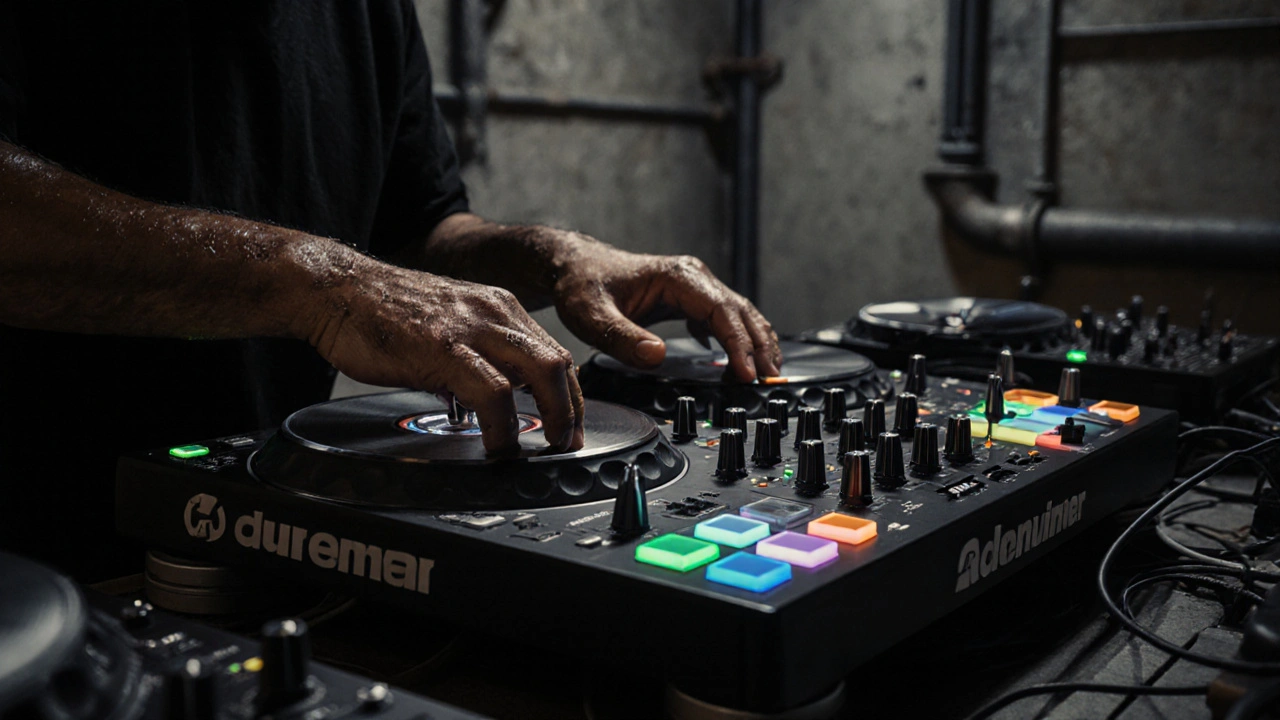
How to Practice or Apply Night Club
Setting Up for Success
Plan ahead. Check the club’s website for the night’s lineup. Look up the DJ-do they play deep house or hard techno? Know what to expect. Arrive early to avoid lines. Hydrate before you go. Don’t show up drunk-your body will thank you. Pack a small bag: ID, phone, charger, and maybe a light jacket. The air conditioning hits hard after midnight.
Choosing the Right Tools/Resources
You don’t need fancy gear. But if you want to extend the vibe, try a portable speaker for your home after-party. Or use Spotify playlists like “Club Classics 2025” or “Dublin Underground” to keep the energy alive. Apps like Resident Advisor list upcoming events with reviews. Follow local promoters on Instagram-they know where the real magic happens.
Step-by-Step Guide
- Decide what kind of night you want: high-energy dancing or chill vibes with good music?
- Search for clubs matching that vibe using Resident Advisor or local event pages.
- Check the dress code (most are casual, but some have smart-casual rules).
- Arrive 30 minutes after doors open to avoid crowds.
- Let the music guide you. Don’t force it. If you’re not feeling it, step outside for air.
- Stay hydrated. Drink water between drinks.
- Leave when you’re ready-not when the club closes.
Tips for Beginners or Couples
If it’s your first time, go with someone you trust. Don’t feel pressured to dance if you’re shy. Watch for a few songs. Then take one step. That’s enough. Couples: don’t stay glued to each other. Let each other move freely. The best nights are when you reunite after dancing separately, smiling without saying a word.
FAQ: Common Questions About Night Club
What to expect from a night club?
You can expect loud music, dim lighting, and a crowd moving as one. It’s not a bar where you chat over cocktails. It’s a sensory experience. You’ll feel the bass in your chest. You’ll sweat. You might not know anyone. That’s okay. The energy pulls you in. You won’t be forced to dance, but you’ll likely find yourself doing it anyway. Most clubs have a mix of regulars and newcomers. Everyone’s there for the same reason: to feel something real. Leave your phone in your pocket. The moment is here.
What happens during a night club session?
A night club doesn’t have a fixed schedule like a concert. The DJ builds the night like a story-slow start, rising energy, peak drop, gentle wind-down. People arrive, drink, dance, rest, talk, dance again. Around 1 a.m., the main set hits. That’s when the floor fills. By 3 a.m., the crowd thins, but the vibe deepens. Some people leave. Others stay for the after-hours set. It’s not about hours-it’s about the flow. You don’t need to stay until closing. Just stay long enough to feel it.
How does a night club differ from a bar?
A bar is for talking. A night club is for moving. Bars have tables, TVs, and background music. Clubs have sound systems, fog machines, and no chairs. In a bar, you order a drink and wait. In a club, you walk in and get pulled into the rhythm. The music isn’t an accent-it’s the main event. You’ll hear the same song three times in a club. In a bar, it’s on shuffle. The goal in a club is immersion. In a bar, it’s conversation.
What is the method of enjoying a night club?
There’s no right way. But the best method is simple: show up with an open mind. Let go of expectations. Don’t go to be seen. Go to feel. Dance if you want. Watch if you don’t. Talk to strangers. Say no to drinks if you’re full. Stay hydrated. Leave when you’re ready. The club doesn’t care if you’re cool, rich, or quiet. It only cares that you’re present. That’s the only skill you need.
Safety and Ethical Considerations
Choosing Qualified Practitioners/Resources
There are no “practitioners” in a club, but there are responsible venues. Look for clubs with trained staff, clear emergency exits, and security that doesn’t intimidate. Check reviews for reports of harassment or unsafe conditions. Reputable clubs have zero-tolerance policies for discrimination and sexual misconduct. If something feels off, leave. Your safety comes first.
Safety Practices
| Practice | Purpose | Example |
|---|---|---|
| Keep your drink in sight | Prevent tampering | Don’t leave it unattended, even for a second |
| Travel with a group | Ensure safe return | Agree on a meeting spot if separated |
| Know your limits | Prevent overconsumption | Alternate water with alcohol |
| Use trusted transport | Safe ride home | Book a licensed taxi or ride-share before leaving |
Setting Boundaries
Consent isn’t optional. If someone touches you without asking, say no. Loudly. Walk away. If someone tries to dance with you and you’re not interested, a simple “not tonight” is enough. No explanation needed. Clubs that respect their guests enforce these boundaries. If they don’t, leave-and tell someone.
Contraindications or Risks
If you’re pregnant, recovering from addiction, or have heart conditions, consult a doctor before going out. Some people find loud bass overwhelming. If you’re sensitive to light or sound, bring earplugs. There’s no shame in leaving early. Your health matters more than staying for the whole set.
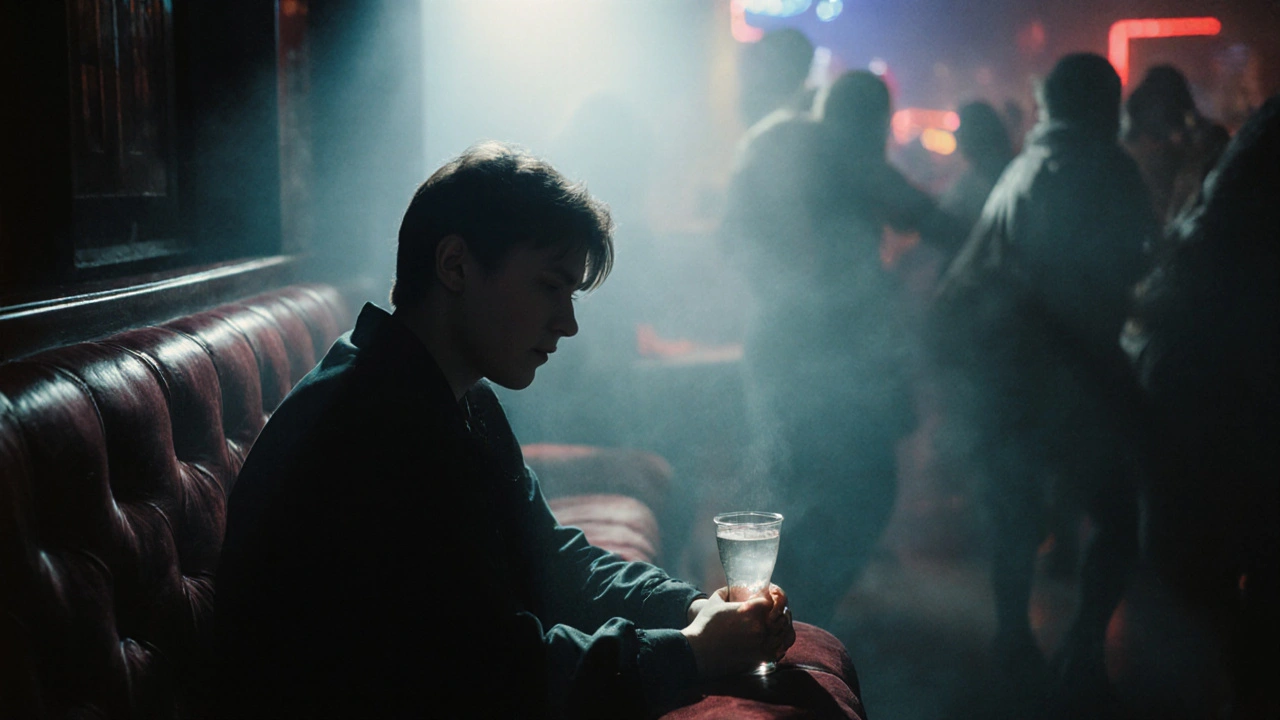
Enhancing Your Experience with Night Club
Adding Complementary Practices
Try journaling after a night out. Write down which songs moved you, who you danced with, how you felt. This turns a fun night into a reflective experience. Pair it with morning yoga or a long walk to ground yourself. Music playlists can extend the vibe-create a “Club Recovery” playlist for the next day.
Collaborative or Solo Engagement
Going alone is powerful. You notice things you wouldn’t if you were with friends. You meet people you wouldn’t otherwise. But going with a group is great too-just make sure you’re not all glued to each other. Let each person explore. Reconnect later. Both ways work. It’s about your intention.
Using Tools or Props
Earplugs are a game-changer. They protect your hearing without killing the music. A small portable fan helps if you’re sweating. A clear phone case with a wrist strap keeps your phone safe. Skip the glitter. It gets everywhere and is hard to clean.
Regular Engagement for Benefits
One night a month is enough. It’s not about frequency-it’s about presence. When you go with intention, the benefits last. You sleep better. You feel more connected. You return to Monday with a lighter heart.
Finding Resources or Experts for Night Club
Researching Qualified Experts/Resources
Look for clubs with verified event pages on Resident Advisor or Bandsintown. Read reviews on Google and TripAdvisor-not just for the music, but for safety and staff behavior. Follow local music blogs. In Dublin, check out The Thin Air or The Thin Line for honest reviews.
Online Guides and Communities
Reddit threads like r/Clubbing and Facebook groups like “Dublin Nightlife” are goldmines. People post about new venues, secret after-parties, and hidden gems. Don’t follow influencers. Follow locals.
Legal or Cultural Considerations
In Ireland, clubs must follow strict licensing laws. Last call is usually 2 a.m., and ID checks are common. Don’t try to sneak in under 18. Respect the rules-they’re there for safety. Cultural norms vary: in some cities, dancing is wild. In others, it’s subtle. Observe first. Then join.
Resources for Continued Learning
Books like “Rave Culture and Religion” by Graham St. John or documentaries like “Ibiza: The Hidden World of the DJs” give context. Podcasts like “The DJ Podcast” feature interviews with underground artists. Learn the history-it makes the music mean more.
Conclusion: Why Night Club is Worth Exploring
A Path to Emotional Freedom
The night club isn’t about excess. It’s about release. In a world that asks us to be quiet, productive, and controlled, it’s one of the last places where you can just be-loud, messy, joyful, tired, alive. You don’t need to be good at dancing. You just need to show up.
Try It Mindfully
Go with curiosity, not pressure. Stay safe. Listen to your body. Leave when you’re done. That’s all it takes.
Share Your Journey
Tried a night club this month? Share your story in the comments-what song made you move? Who did you dance beside? Follow this blog for more honest takes on nightlife, music, and how to live fully after dark.
Some links may be affiliate links, but all recommendations are based on research and quality.
Word count: 1,782
Suggested Images
- A dimly lit dance floor with people silhouetted under colored strobe lights
- A DJ behind a booth, hands on mixer, surrounded by sound equipment
- A close-up of hands holding a drink, with fog and neon reflections in the background
- A group of friends laughing outside a club at 3 a.m., wearing casual clothes
- A quiet corner of a club with a single person sitting, listening, eyes closed
Suggested Tables
- Comparison of Night Club vs. Other Evening Venues
- Key Benefits of Night Club
- Night Club Safety Tips

